A reimagined Oxon Run Park takes shape in the heart of Southeast Washington, D.C.
A variety of nonprofits work together to improve the park and the stream running through it
Oxon Run Park, one of the largest public parks in Washington, D.C., sits at the heart of Ward 8—a collection of neighborhoods that includes both million-dollar homes and public housing. Like most urban green spaces, the 128-acre park provides much more than playgrounds and sports fields. For many of the Ward 8 communities, the park is a haven that offers a place to connect with nature through holistic events and spaces.
"When a community is on life support, this is like our hospital that we come to for healing," said Brenda Lee Richardson, vice chair of Friends of Oxon Run Park, a nonprofit organization focused on programming, fundraising and maintenance for the park.
For years, many of the neighborhoods in Ward 8 have faced severe challenges, including food insecurity and crime. In 2023, there were 98 homicide incidents recorded in Ward 8, an increase from the 78 incidents in 2022. Additionally, the district reported 440 incidents of assault with a dangerous weapon,” compared to 74 such incidents in neighboring Ward 6 during the same period, according to DC Crime Data.
"We often live in a community that's veiled with fear and violence, and to be able to feel safe and a sense of freedom in the park was very important to us," Richardson said.
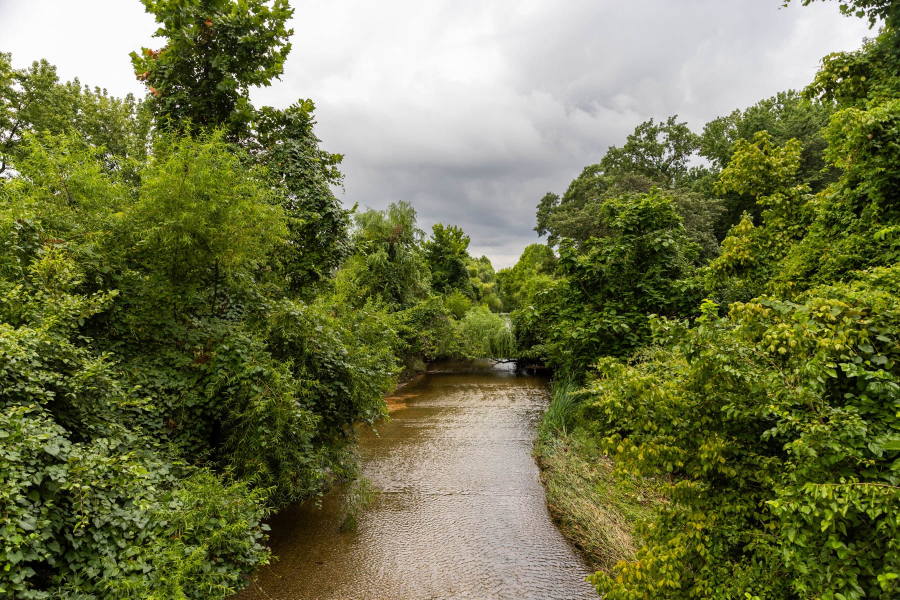
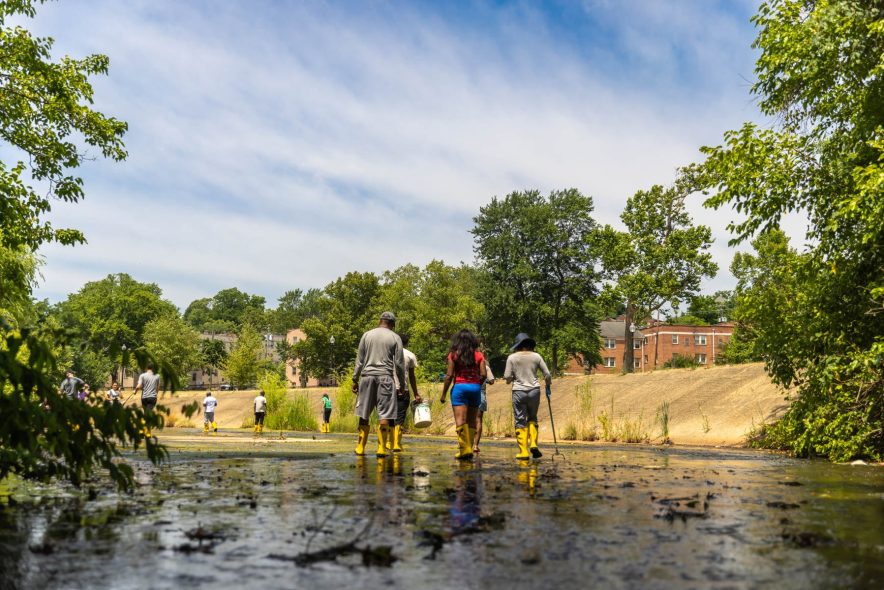
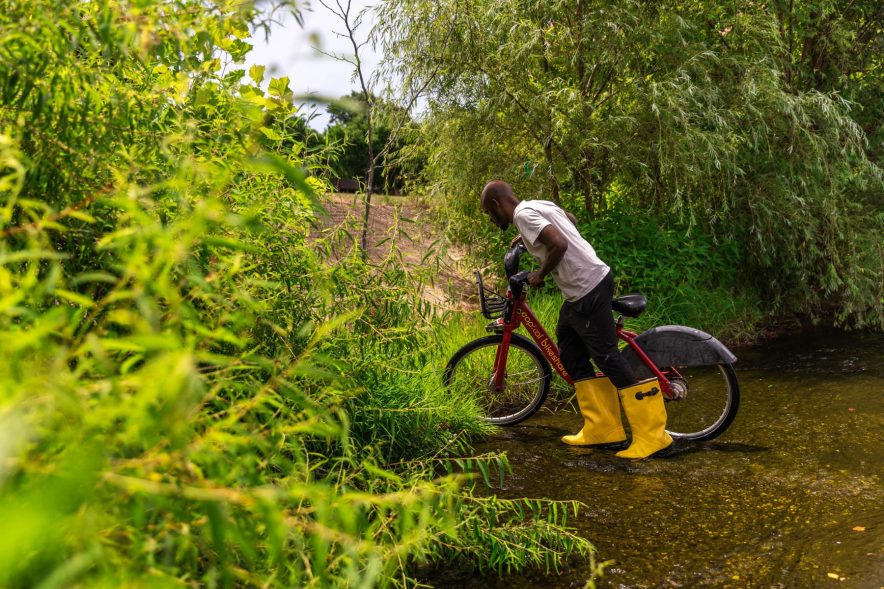
Shaped like one long rectangle, the park encompasses many miles of the stream called Oxon Run, which flows into the Potomac River and eventually the Chesapeake Bay. The stream recently received a “Moderately Poor” water quality score, showing that high pollution levels are keeping many species of fish from existing in the waterway. However, a variety of nonprofits and environmental agencies are working to revive the stream so that it can be a centerpiece of the park.
In 2022, the District of Columbia Department of Energy and Environment (DOEE) presented the Oxon Run Stream Restoration Project, which includes efforts like removing the concrete lining along the stream and planting trees and vegetation in its place. According to DOEE, returning parts of the stream to its natural state will help prevent erosion, reduce flood risks, improve water quality and create better habitat for wildlife.
At the local level, organizations like The Green Scheme have been successful in encouraging the community of Ward 8 to help protect the stream. Between 2020–2021, a Community Stormwater Solutions Grant from DOEE, administered through the Chesapeake Bay Trust, allowed for The Green Scheme to start a program called Ward 8 Water Watchers. The program organizes volunteer trash pickups and educational events where people can learn about Oxon Run and nearby Watts Branch and understand how to protect them.
Beyond stream restoration, community outreach has been central to the park's revitalization. One of the roles of Friends of Oxon Run Park is to help coordinate events for the public. According to Richardson, there are a variety of organizations working to make the park a fun and inviting place for people in the area.
"We do art in the park, dance in the park, storytime with the police department, and scavenger hunts,” Richardson said. “We just want everyone to know that this park is for everybody."
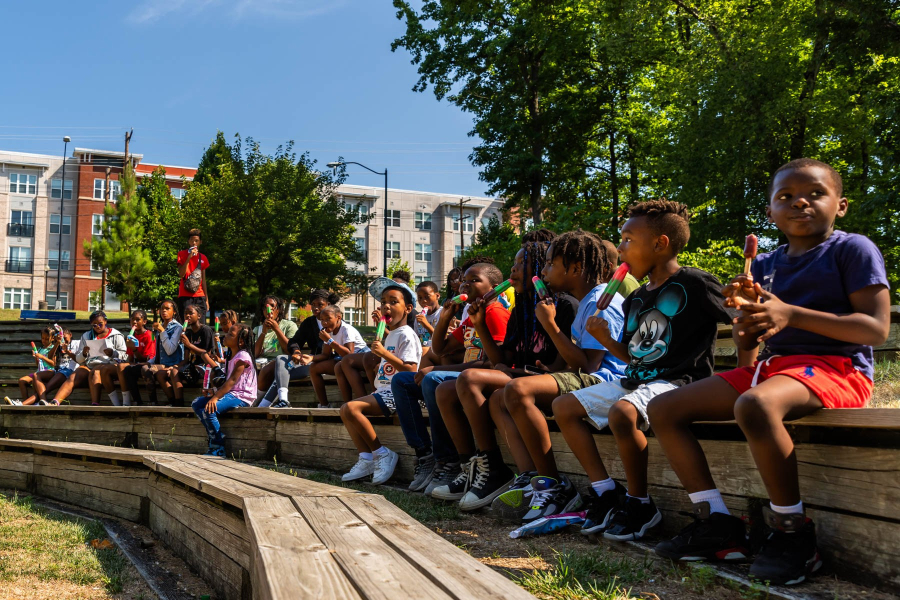

Oxon Run Park also serves as a location for various educational events. Exodus Summer Camp is an organization that offers recovery support services for low-to-moderate-income families in the Washington Metropolitan area. Pastor Gary Hill, founder of the camp, said he brings kids to the park every Wednesday morning during the summer to play, read stories at the amphitheater and experience nature.
Public schools also use the park for outings. Ashton Minor, a secondary special education teacher at Anacostia High School in Southeast D.C., took his class of senior high school students to a community farm and wellness space in Oxon Run Park known as The Well at Oxon Run, a program of DC Greens.
“Getting to see nature in an urban environment is a different experience,” Minor said. “There are so many places locally that we have access to, that we don’t know about, to actually take advantage of, and I think this has been an enlightening and empowering experience, just to get our Anacostia High School seniors involved in nature and environment. Our kids are so used to being in the house, in schools, on their phones, they don’t really get to experience the beauty of what’s around them.”
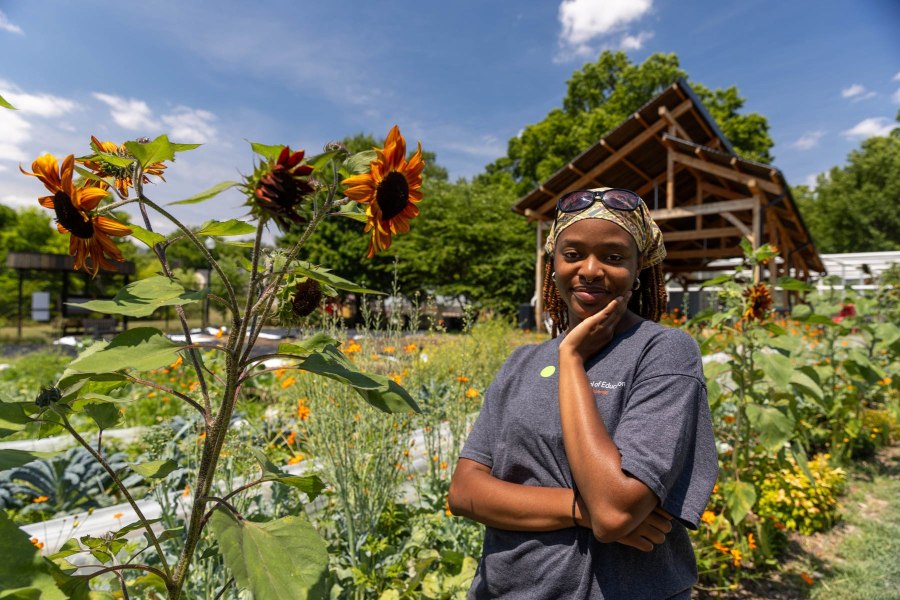
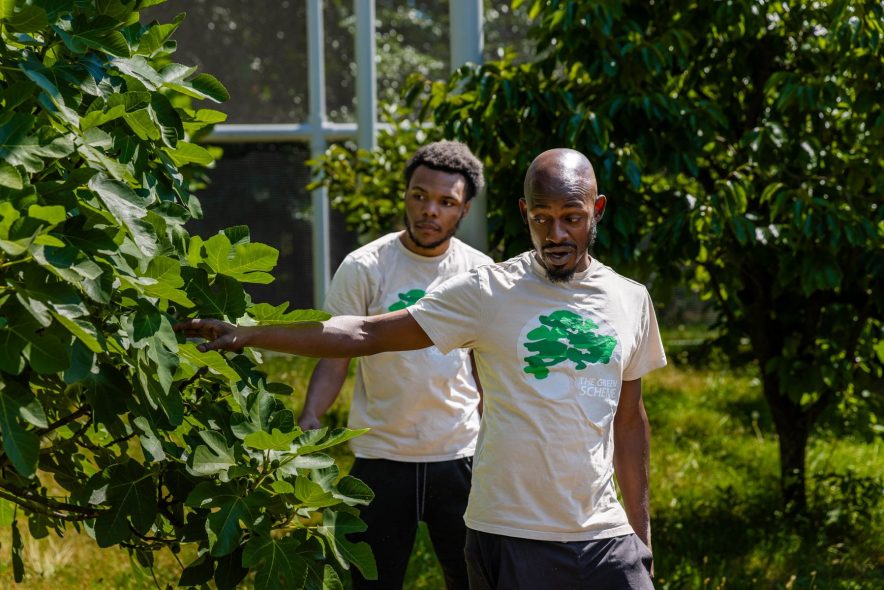
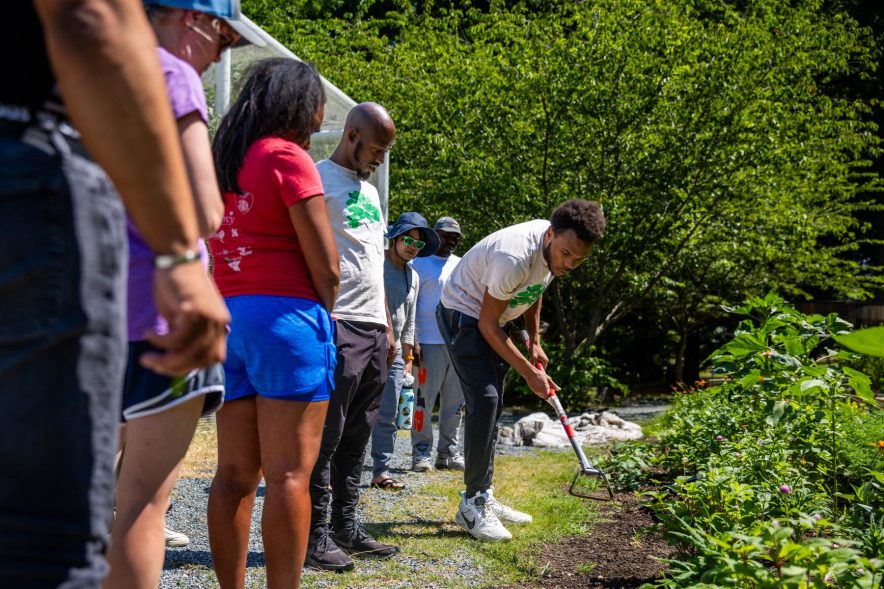
In 2022, The Well at Oxon Run Park was installed on an unused lot in the park. The nonprofit DC Greens now uses the space to host community events and grow nutritious food that is shared with community members at no cost. In 2023, The Well at Oxon Run harvested more than 4,000 pounds of fresh produce for the local community.
“I’ve been coming for six months now,” said Debra Sharpe, a community member who frequents The Well at Oxon Run. “I come just about every week, I get kale and collards, and I’m gonna get some cabbage and spinach. It’s free and healthy! I just love greens and vegetables.”
Some neighborhoods in Ward 8 exist in a food desert, where residents have limited or nonexistent access to healthy and affordable food options due to a lack of grocery stores.
“More recently, we've adopted the term 'food apartheid,' introduced by Karen Washington, which speaks to the structural and systemic way in which districts have been redlined, including the locality of access to grocery stores,” said Kenneth Bridgers, DC Greens’ farm manager at The Well at Oxon Run. “Within the three-mile radius here in Ward 8, you may find one grocery store, which is off Alabama Avenue, the Giant of Alabama Avenue.”
Bridgers, who grew up near Oxon Run Park, said The Well at Oxon Run also provides much-needed emotional and physical benefits. Volunteers are invited to help coordinate events and tend to the farm. In 2023, more than 300 people volunteered at the community space.
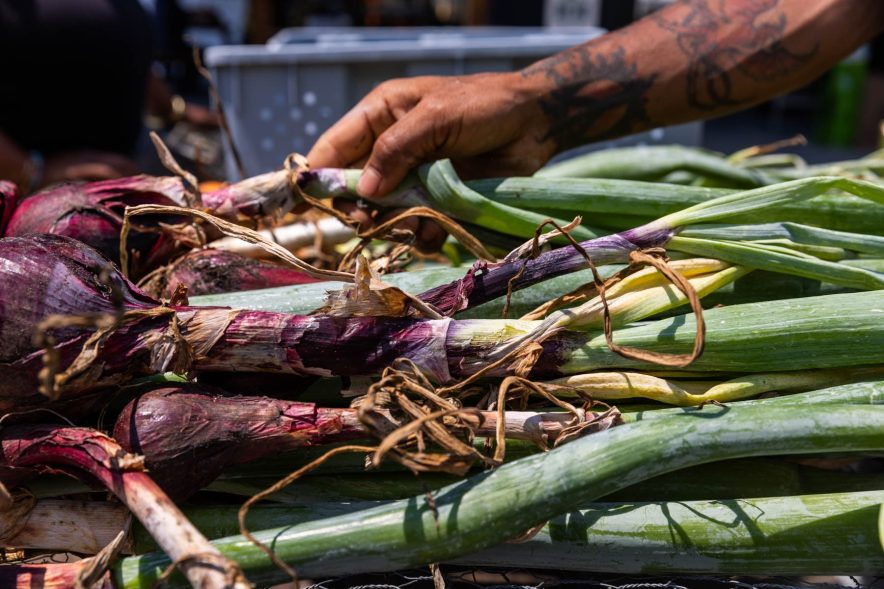
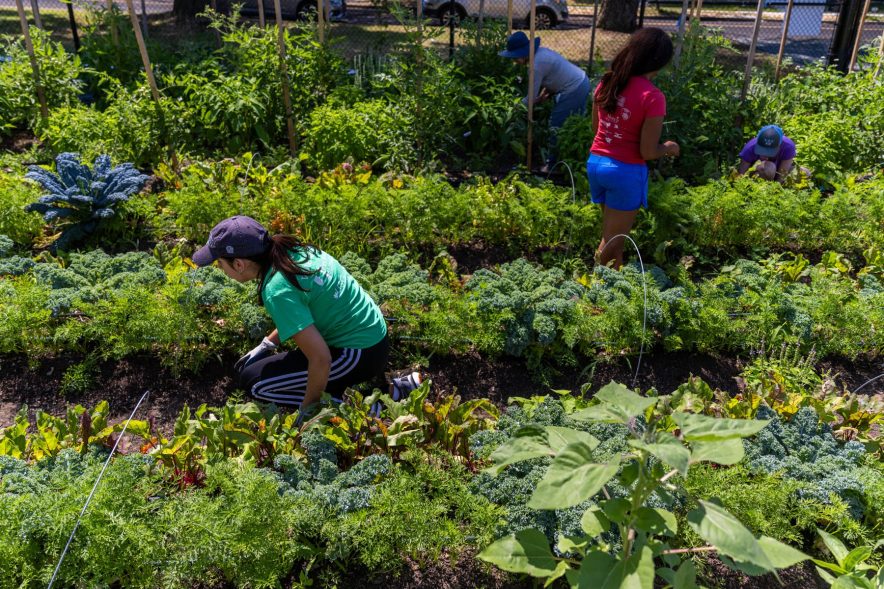
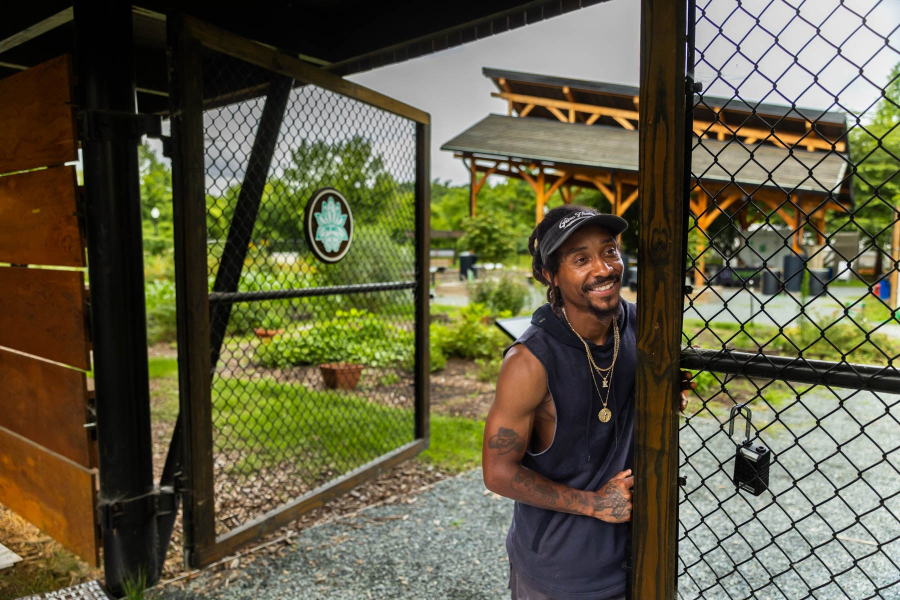
"Gardening is essential to our spiritual, emotional, mental and physical development," Bridgers said. "It's not just the food aspect that keeps people well, but it's the community aspect that keeps people well. It's the physical workout of actually doing gardening. It's the emotional connection that you experience with being in a community. It’s all of those things."
Through the Million Acre Soil Challenge, The Well at Oxon Run receives free seasonal soil testing to ensure that it is benefiting Oxon Run. Through these tests, The Well at Oxon Run discovered that they had an overall soil health quality of 98%, due in part to their sustainable farming practices.
The restoration of Oxon Run Park is a powerful example of what a community can achieve when it comes together to improve its environment and resources. The park's sprawling green spaces, inclusive activities and essential food resources have transformed it into the backbone of the Ward 8 community.
As Absalom Jordan, chair of Friends of Oxon Run Park, puts it, "The more people who come to the park and have a chance to explore it and see the beauty in it and realize how alive it is, then we have people who will be willing to fight to protect the park.”

Comments
I’m old enough to remember a nine hole golf course on that property. No evidence of it now, I suppose.
Thank you Chesapeake Bay Program and Rhiannnon for this wonderful article and video. Rhiannon, it was a true pleasure working with you and the video tell such a poignant story.
But to the "Program" I want to express my heart felt thanks because the article and video that will contribute to educating the contiguous community about the park, it's resources and amenities. This will help in informing and educating the contiguous community about the importance of preserving green space in Oxon Run Park for this and future generations.
Our community is now engaged in a great battle pitting powerful political interest against those of the larger community. A project is proposed that will encompass 4.5 acres and with asphalt parking lots and tennis courts. The project will be an ecological disaster so we would welcome the help of anyone interested in protecting the park. For more information, contact Friends of Oxon Run at friendsofoxonrun.org.
Thank you!
Your comment has been received. Before it can be published, the comment will be reviewed by our team to ensure it adheres with our rules of engagement.
Back to recent stories